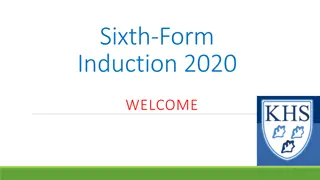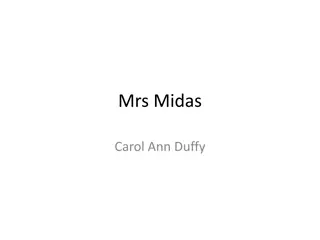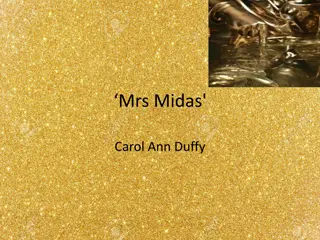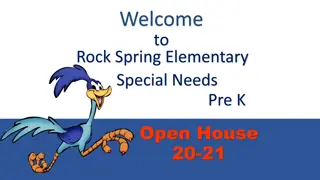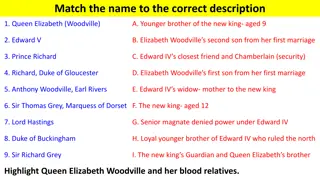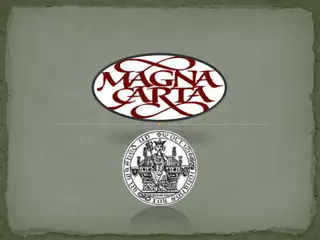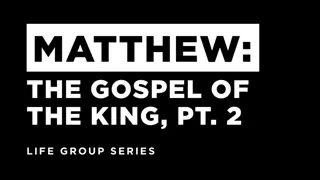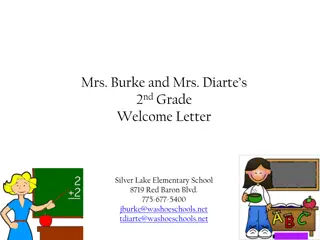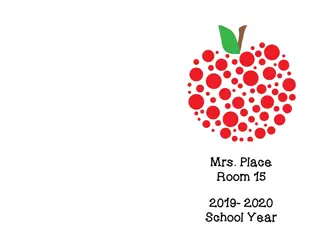Mrs. King and Mrs. Bukovan
This information outlines the daily responsibilities and schedule of 2nd-grade students under Mrs. King and Mrs. Bukovan. It includes details about homework, class rules, behavior management, and grading criteria. The philosophy on homework and expectations for student behavior are clearly defined to create a positive learning environment. Parents are encouraged to support their child's learning journey and to communicate with the teachers for academic and behavioral progress.
Download Presentation

Please find below an Image/Link to download the presentation.
The content on the website is provided AS IS for your information and personal use only. It may not be sold, licensed, or shared on other websites without obtaining consent from the author.If you encounter any issues during the download, it is possible that the publisher has removed the file from their server.
You are allowed to download the files provided on this website for personal or commercial use, subject to the condition that they are used lawfully. All files are the property of their respective owners.
The content on the website is provided AS IS for your information and personal use only. It may not be sold, licensed, or shared on other websites without obtaining consent from the author.
E N D
Presentation Transcript
IU Mrs. King and Mrs. Bukovan
2ND GRADE RESPONSIBILITIES Starting the day off right: (unpacking backpack, turning in important papers, preparing to learn, arriving to school on time, etc.) Binder/Agenda: classwork, record of behavior, and school/home communication such as dismissal changes, forms, Take Home Tuesday etc. Homework: I-ready reading and math weekly practice. 45 minutes of reading and 45 minutes of math per week, and checked for completion on Mondays. There will usually be time in the classroom to work toward their weekly minutes. These are mainly the student s responsibility! Bring water and a snack daily to school!
Time/Day of the Week Bukovan homeroom King homeroom Monday - 11:20 Music/Playground P.E. Tuesday 11:50 P.E. Music/Playground Wednesday 11:50 P.E. P.E. Thursday 11:50 Music/Field Art/Field Friday 11:50 Art/Field Music/Field Lunch 10:00 10:30 Snack after specials daily
Bryant Broncos are respectful, responsible and caring: Raise your hand to speak. Be kind to your class family. Follow directions. Listen attentively and participate. Do your best.
Students are expected to follow our class rules daily. Students will be given reminders/warnings when they are not following the rules. We reward positive behaviors by giving students at ticket. This could be for being a leader, a good friend or for their hard work and/or effort. When students receive five tickets they may go to the Treasure Box or get a sweet treat (Dum Dum lollipop, Tootsie Pop, etc.) If negative behaviors continue, the teacher will reach out to parents via ClassTag or a phone call. If a student receives 3 notes/calls regarding a specific behavior, they will receive a needs improvement on their report card in that area.
E = Excellent (90-100) A S = Satisfactory (70-89) B/C N = Needs improvement (60-69) D U = Unsatisfactory (>59) F
Our philosophy on homework: We use every moment of our school day learning. Unless students have unfinished work to complete, their only homework is to complete 45 minutes of I-Ready Reading and 45 minutes of I-Ready Math each week. We check for completion on Monday mornings, so they have the weekend to get it finished. Students should be enjoying an independent reading book during the week after school. Their goal should be about 15- 20 minutes of reading a book of their choice, on their level. We encourage parents to read WITH and TO your child to model fluency and for students to practice oral reading skills.
READING Florida adopted the B.E.S.T. standards this year for grades kindergarten through 2nd grade. You can find a copy of the standards HERE. Second grade standards start on page 43. Second grade is a big year for students to realize that reading is for enjoyment and gaining knowledge, NOT a chore that must be done daily.
Whole group reading is the opportunity for teachers to model reading skills and strategies with a purpose in mind. *How it may look in the classroom: Teacher demonstrates appropriate reading behaviors while reading text. Teacher reads with proper fluency, rhythm, and intonation. Teachers teach students how to think about text and discuss it through questioning and think aloud. Small group reading: Students in group have a common need Students have their own text Teacher explicitly guides students addressing their needs
INDEPENDENT READING Students read independently with a purpose Students select text on their reading level Students practice strategies modeled in Whole Group instruction Students respond to their reading
Modes of writing are explicitly taught, modeled, and practiced through writer s workshop: Modes: Informative writing-explaining or providing information in response to a text with support from their reading. Narrative writing-telling a story or describing an experience Opinion writing-convincing or proving a point, expressing an opinion
Friday Journals Students will write about their week each Friday in their journal. This is one way to implement the writing craft(s) taught that week, and reinforce previously taught grammar and writing crafts. Please read and initial or write a letter back to your child each week. The reading journal should come back to school each Monday.
The Math Florida State Standards are our curriculum. Understanding & Fluency within 20 2-Digit & 3-Digit Addition & Subtraction with and without regrouping-various strategies Solving 1 & 2 step word problems Estimate, Measure & Compare Length Working with Money Telling time to the nearest 5 minutes Recognizing & Draw 2D & 3D shapes Partition Shapes - halves, thirds, fourths Data & Graphing picture graphs & bar graphs Equal Groups odd/even, arrays
Next Generation Sunshine State Standards (NGSSS) are our curriculum with a strong emphasis on Scientific Inquiry and Process skills. Children develop knowledge of and the ability to use the tools, skills, and methods of scientific inquiry. Strands of Learning: Nature of Science inquiry, process skills, STEAM Physical Science forces, gravity, magnets, properties of matter, changes in matter, forms of energy Earth and Space Science weather, rocks, soil Life Science human body, life cycles, habitats
Geography people, places, environments, maps, climates Economics goods, services, and resources Government citizens and citizenship, community leaders, rules and laws History cultural diversity, timelines, national symbols
This year we will be communicating with families through the Class Tag app. Please send any dismissal changes or notes through this app as this is the fastest mode of communication for us.
Assessment is an on-going process throughout the reporting period and involves both formal (tests/performance tasks) and informal (observations) data. Grades should reflect the student s pattern or trend of performance Grades should reflect the learning that has occurred after the student has had sufficient opportunity to practice. Grades are not averaging numerical scores to determine a grade Types of assessments: Oral questioning/interviewing Teacher made tests Curriculum/district tests Observing student s performance; whole group reading activities, small group reading, mathematics problem-solving, scientific investigations Student work samples: journals, writing samples, projects Rubrics/Checklists I-Ready (Diagnostics administered three times a year.)
Thank you so much for your support. Please let us know if you have any questions or comments about this presentation. Mrs. King and Mrs. Bukovan



